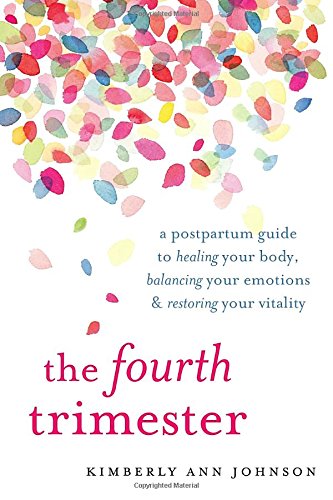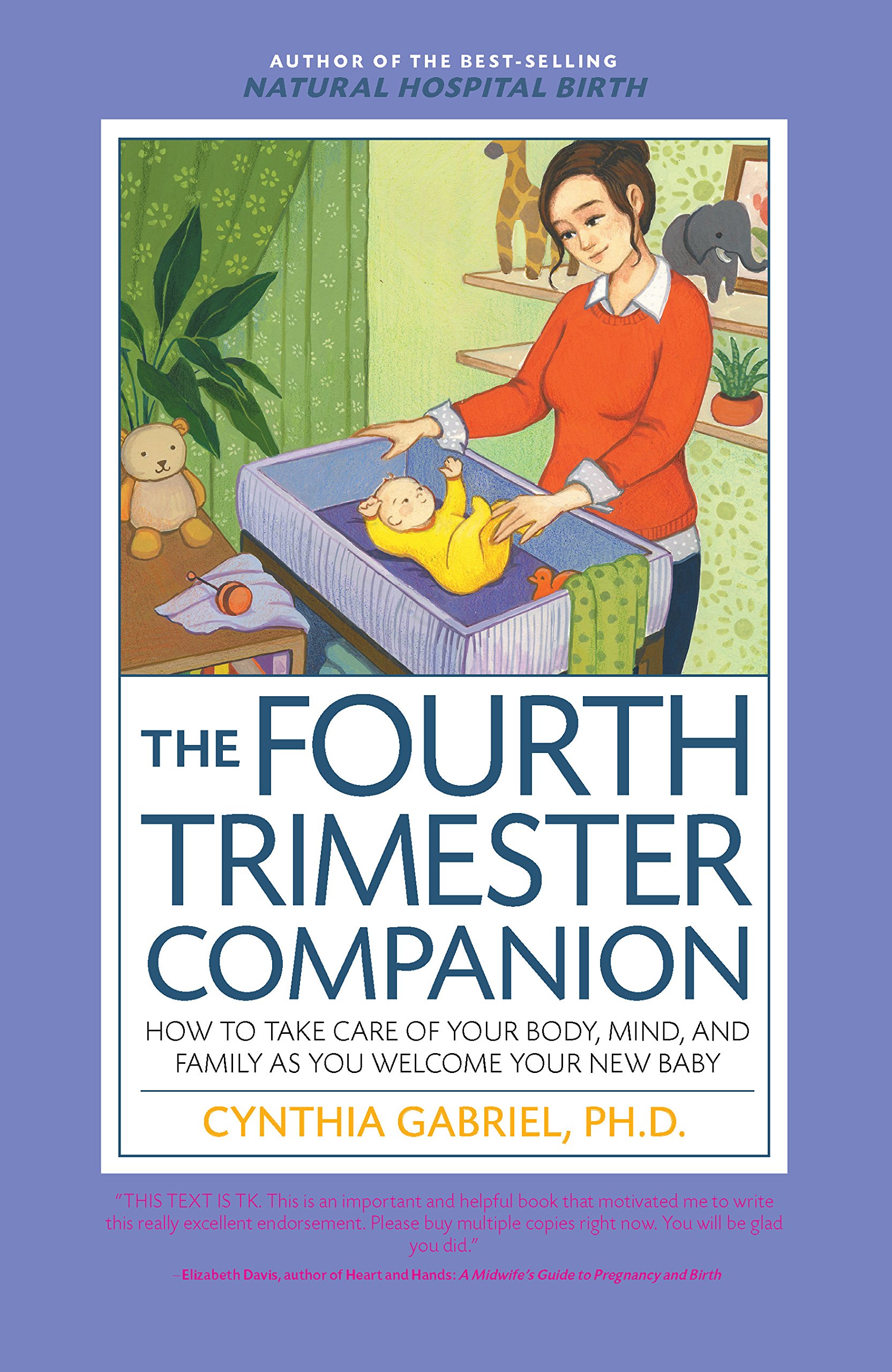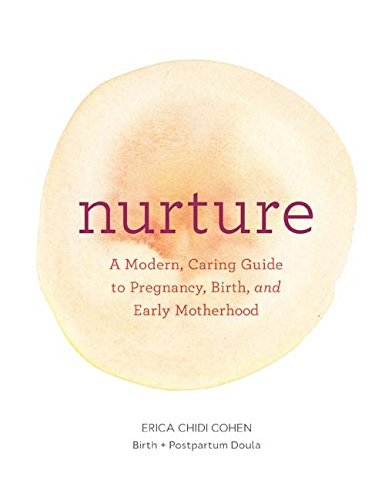I remember the newborn period very well. I was overwhelmed, overjoyed, sad, anxious, content — and more. I was lucky to have two close friends who shared every little detail about the postpartum period. I saved many of our emails back and forth — some of the subject lines were: “Am I Crazy?, Naptime Diaster, I am so tired, Mommyhood, and oh my word.” Kelly Rutan, DONA certified postpartum doula is writing today about what to expect and how to mentally prepare for the fourth trimester, I wish I had her advice back then! Follow her at Motherlinenc.com.
Have you heard of the “fourth trimester?” Ignore that “tri” means three for a moment.
Pregnancy is divided into trimesters and that third trimester, the one that seems to last for 17,897 days but really only lasts for 13-15 weeks, ends with the birth of a baby. This moment is so exciting for the new parents – it is everything they have dreamed of for nine months.
But this moment is shocking for the new baby.

Your baby has only ever known life inside of your womb. A place that was dark and confined, with the constant noise of your heartbeat, and the whooshing sound of your body. Your womb provided continuous rocking. Hunger did not exist. And then — just like that — the third trimester ended and your baby entered a strange, new world.
In the beginning, your baby’s needs will mimic his life inside the womb. He wants to be held close and never be put down. He likes the sound of white noise and a heartbeat. Swaying and rocking soothe him. He demands to be fed around the clock. Basically, your baby wants his life to continue as closely as it was when he still lived inside of mom. And it is also what your baby needs, his immature nervous system needs physiological input from mom’s biological rhythms to regulate.
It takes time for baby to adjust during this “fourth trimester.”
And you know what? Most new parents are completely unprepared for this time.
You researched the best baby items and lovingly crafted your registry. Your nursery is Pin-worthy. You wrote a birth plan and discussed it with your care provider. Maybe you even hired a birth doula to make sure that you were supported in every way possible on that momentous day.
But you didn’t know what to expect or how to prepare for the postpartum period. That time when both babies and parents both go through momentous changes.
I am heartened that in the time since we wrote this article, the 4th trimester is a more well-known concept. These books are new releases and all focus on the nurturing and nourishment mother and baby needs during this time.
The Fourth Trimester: A Postpartum Guide to Healing Your Body, Balancing Your Emotions, and Restoring Your Vitality


4 Things Every Parents Needs to Know About the “Fourth Trimester”
Your body is a wreck.
Sometime during the first weeks, you will say, “What is happening to my boobs!?” Your nipples will be sore and cracked and your breasts will leak. As your milk comes in, they will be engorged and painful and unless you are a mammogram technician, I guarantee that you have never handled boobs so much during the course of your day.
And even if you’re formula feeding, you will still have to deal with your milk coming in and engorged breasts. It’s simply the reality of that first week.
It doesn’t end there.
As your uterus shrinks, you will have ‘afterpains’, which basically feel like medium-intensity contractions. And you thought you were finished with those! You may have stitches in your perineum, which makes sitting a nightmare and pooping…. well, nobody likes to talk about pooping, but that first bowel movement after delivery is not fun. Take your stool softener, ladies! No matter if you delivered vaginally or by cesarean, your uterus will shed its lining and you will bleed — for weeks. If you had a cesarean, you will get to experience all of these things and recover from major abdominal surgery. Why don’t people talk about mesh panties and peri-bottles more often? These are things we need to know about!
All of this is normal and expected, but we don’t talk about it, sometimes not even with close friends. Knowing that your body will be physically changing and healing can help you remember that in the fourth trimester, it is okay, no it is necessary, for you to slow down. Listen to your body and follow its’ cues. For your body, the fourth trimester is a time to repair, renourish, and rejuvenate.
Your emotions are even more wrecked.
Your body might feel like it’s been hit by a truck, but it’s got nothing on your emotions: Awed, weeping, angry, feeling guilty, feeling happy, overwhelmed.
You will have all of these feelings. You will probably have them all in one day. Maybe even in one hour. And I am telling you that is completely NORMAL.
During labor and delivery, your body received an enormous surge of hormones from the placenta. Once you delivered your placenta and with it, all of those hormones. It will take time for your body, your hormones, and hence your emotions to recalibrate.
This barrage of hormones will leave you exhausted and overwhelmed. These feelings are to be expected. Be kind to yourself and give yourself the grace to cry over anything you want. You are allowed to feel your feelings and the fourth trimester should be an emotional time, that is normal.
But if you are still feeling mostly overwhelmed, sad, depressed, or anxious after several weeks, then it’s time to call your care provider. One in seven women will experience a postpartum mood disorder in the first year, so if you feel this way, you are not alone. Do not put off seeking treatment.
It’s all about constant feeding and little eating.
Babies grow an incredible amount over the first year. And in the fourth trimester when their stomachs are still so small, your main job is to feed that baby. Whether you choose to do this with breast or bottle or both, you will be feeding all.the.time.
Babies are tiny eating and pooping machines. They eat. They poop. They sleep for a bit. They eat again. They poop again. They cluster feed for a long time. They poop. They pretend like they are going to sleep. But, just kidding. They’re ready to eat again.
That is not an exaggeration. That is just normal newborn feeding behavior.
Nursing sessions are long and sometimes the end of one can run right into the beginning of the next. If you’re lucky, you got a chance to use the bathroom in between. If you are bottle-feeding, you will find yourself preparing, feeding, and washing bottles over and over again. And if you’re pumping in the midst of all of this, you are some kind of wizard.
With all of this going on you have probably forgotten one important thing: to feed yourself!
It is so easy to forget to eat, but you cannot pour from an empty cup.
This is where it becomes important to accept any and all offers of help. Accept the meal your friend offered to bring over. Say yes to the meal train your church organized. When your sister visits, ask her to make lunch for you and to pick up something easy for dinner on her way. Have your partner prepare some easy snacks so that you can eat with one hand throughout the day (think raw almonds, cheese sticks, pre-cut fruit or veggies, already opened granola bars or Larabars, or my favorite no-bake oatmeal, peanut butter energy bites.)
Lack of food combined lack of sleep can wear you down fast and if you’re not eating and not sleeping, it’s easy to become depressed.
You learn the true definition of “sleep like a baby.”
During the fourth trimester, you will find that you talk a lot about sleep, but spend very little time actually sleeping yourself.
Everyone will ask you, “How’s the baby sleeping?” It’d be nice if they would ask if you are managing to get any sleep, but instead, that question begins to sound like a judgment.
You begin to dread that question and feel yourself get defensive as you wonder if you’ve already created the wrong sleeping habits. Suddenly you find yourself sobbing and wondering, “Why won’t my baby sleep?!”
Guess what. Babies don’t sleep well and that’s totally NORMAL.
Often, babies have their days and nights mixed up when they are first born. They are used to constant darkness and have undeveloped circadian rhythms. Babies are biologically predisposed to wake up every few hours, day and night, to eat. It is how they survive.
And remember that fourth trimester concept? When babies do sleep, they want to sleep on you. It reminds them of the womb and makes them feel secure. They do not want to be put down, flat on their backs, and left alone.
The idea that newborn babies should be able to sleep through the night is hogwash. And your cousin who keeps telling you that her baby slept through night starting at four weeks?! I have one word for her: liar. Unless her own fourth trimester experience was so traumatic that she’s blocked out all the details and just can’t remember. Then my word for her is: hugs.
With time and maturity of your baby, sleep will come. And then it will leave. And then it will come again. No matter what you do, pacifier or not, sleep on you or not, in a crib or not — there will be a transition to come. So, in those first months, do whatever works and don’t worry about “bad habits.”
The fourth trimester is a time of huge adjustment for everyone – for the baby and for the parents. And no matter how much you read and try to mentally prepare, it is still a shock.
This is not the time to try and do it all. Instead, this is the time to ask for help, to lean on your village.
If you can include a postpartum doula in your village, even better. Postpartum doulas are trained, professionals that help you transition smoothly to life with a newborn baby. They assist with breastfeeding and other feeding issues, can answer questions about what is going on with your postpartum body, and help with newborn care. A postpartum doula encourages you to nap and shower. She helps with laundry and dirty dishes. Postpartum doulas even feed you and prepare meals for the family.
And the best thing about postpartum doulas: they do all this without judgment. They provide true non-judgmental support so you can recover from labor and build your confidence as a new parent in the way that is best for your family.
And this is really what the fourth trimester is all about – finding your confidence. Finding yourself as a mother. Your body and emotions are raw. Your baby is transitioning to life outside the womb. You are finding your way. But you will find it. And if you can adjust your expectations to include the fourth trimester as a period of adjustment and transition, the easier it will be. You are telling yourself — it’s okay to take the time to figure this out.







 5 Parenting Tips from a Parent Coach
5 Parenting Tips from a Parent Coach
Parents and parents-to-be must check this site, it is a very important issue!